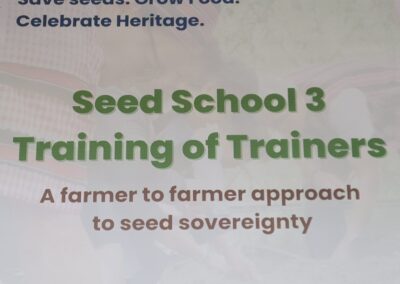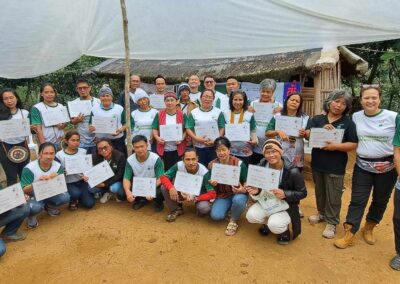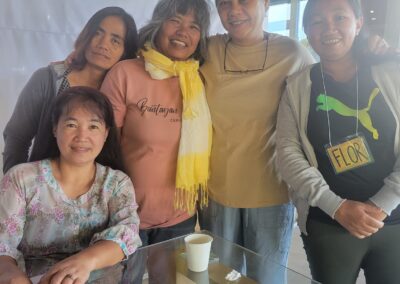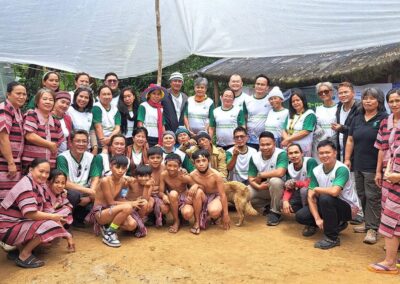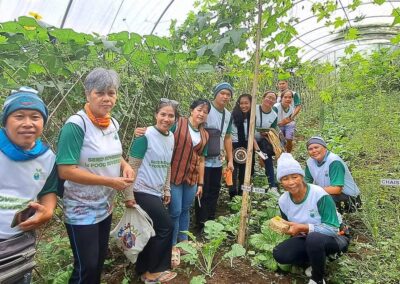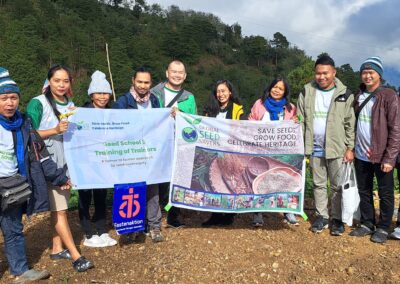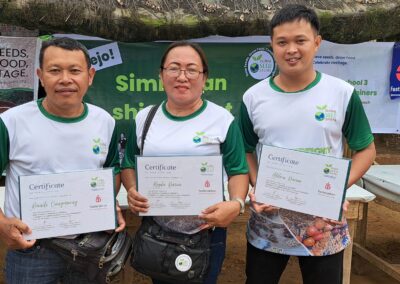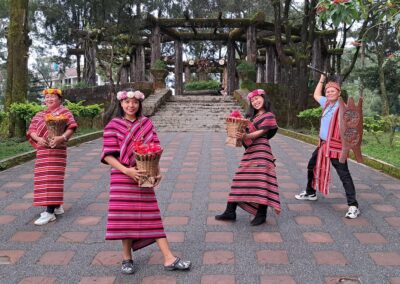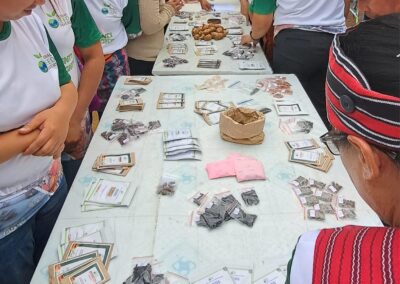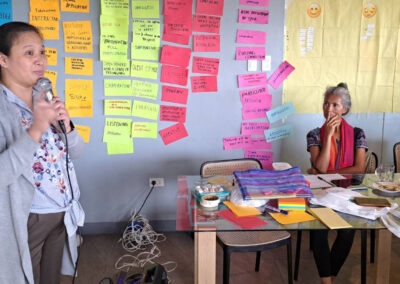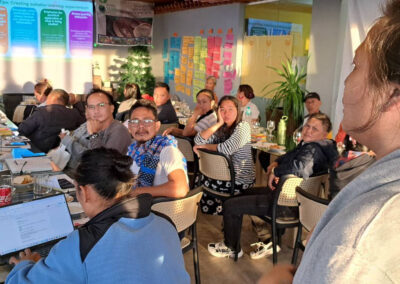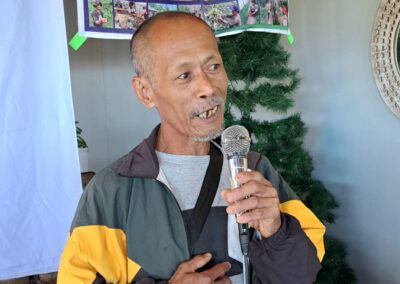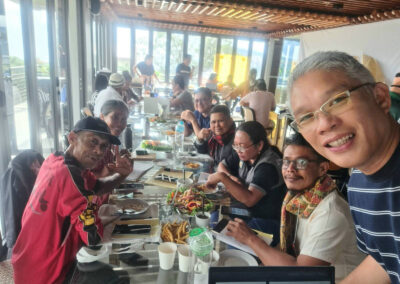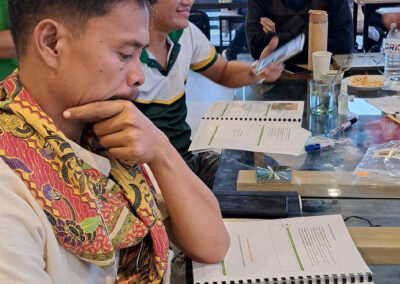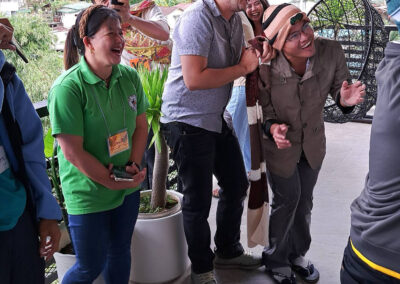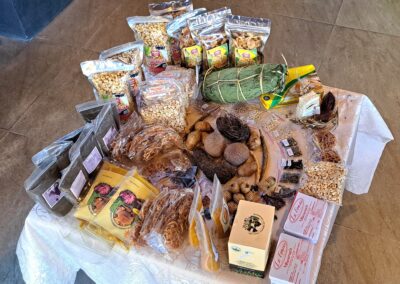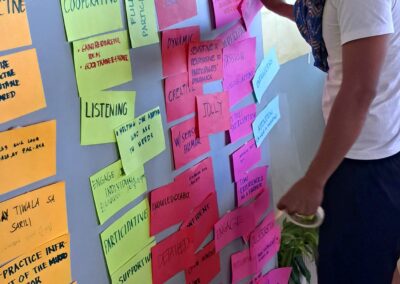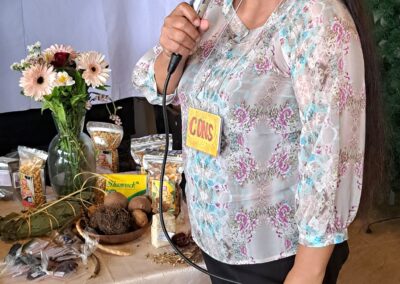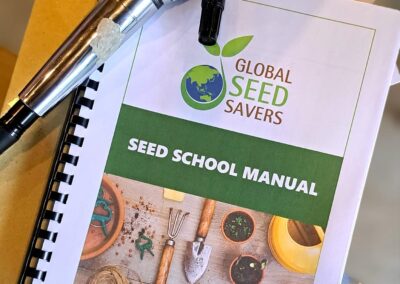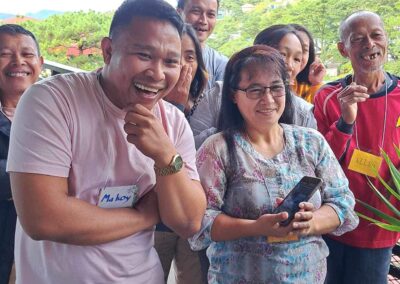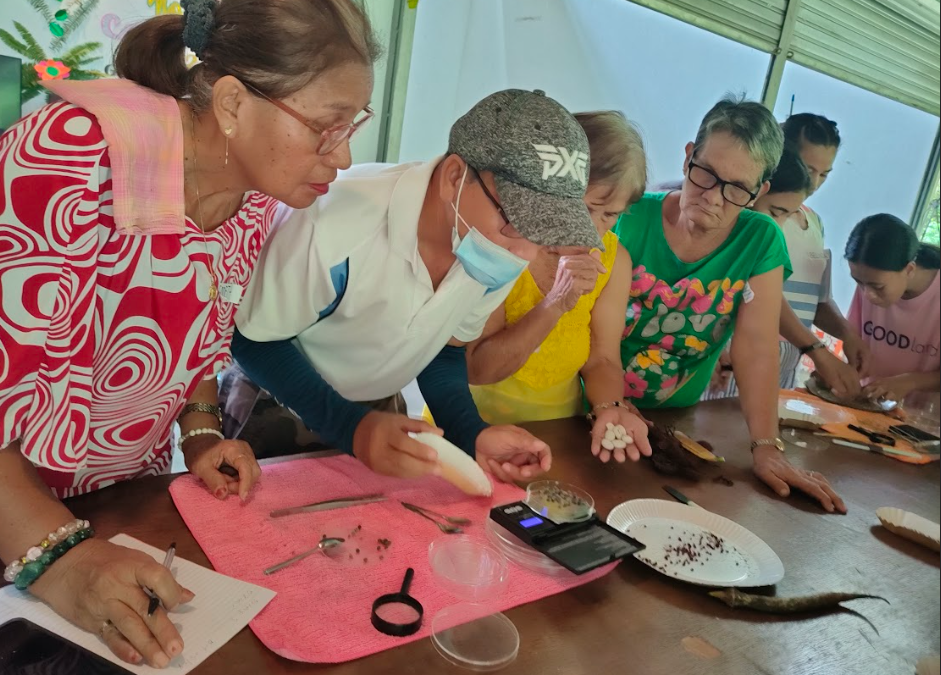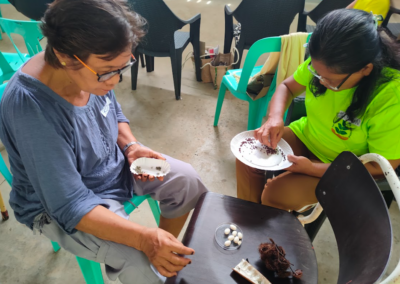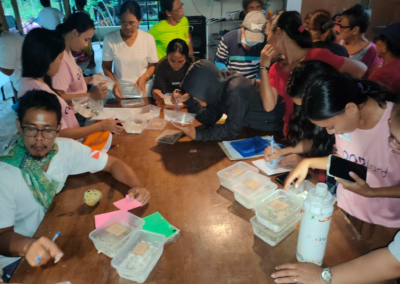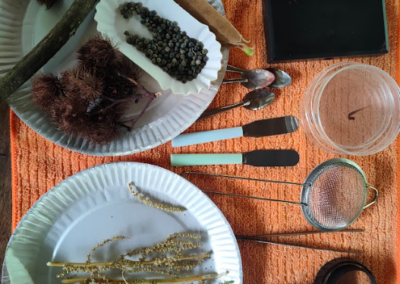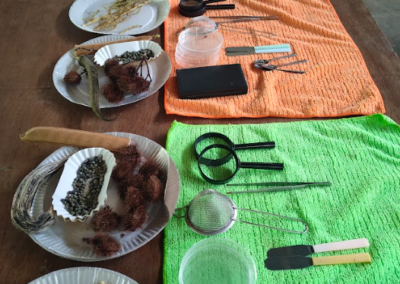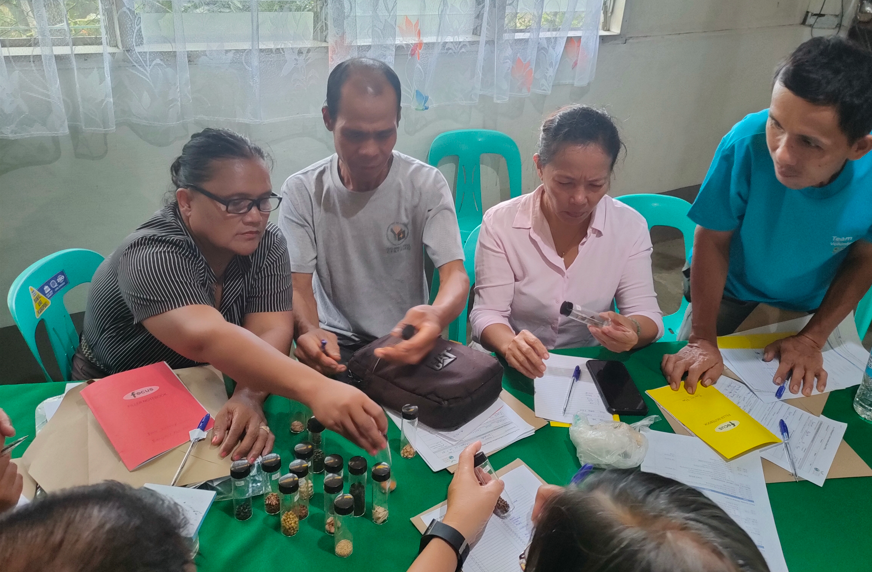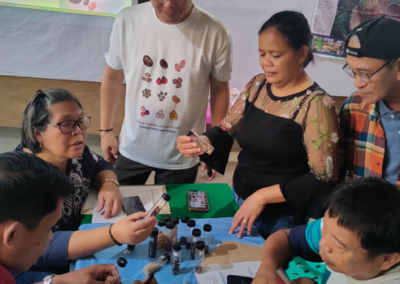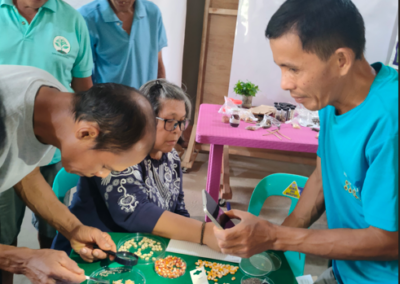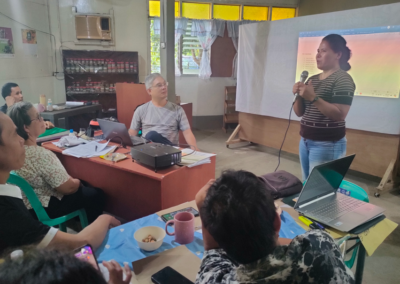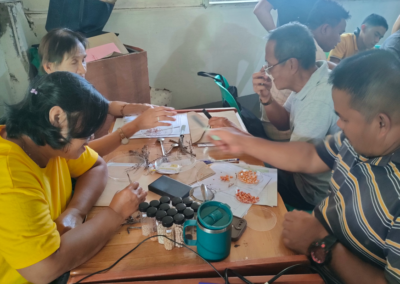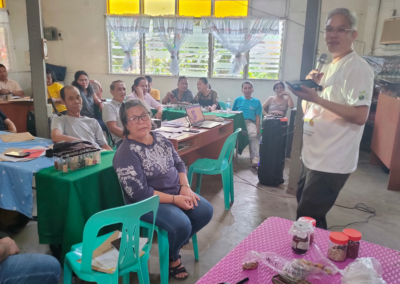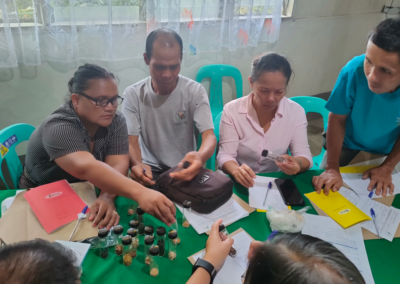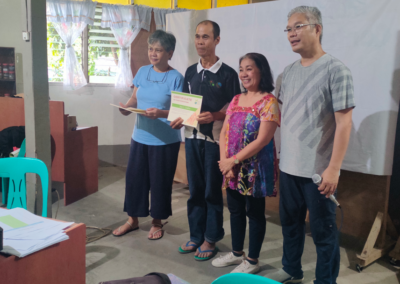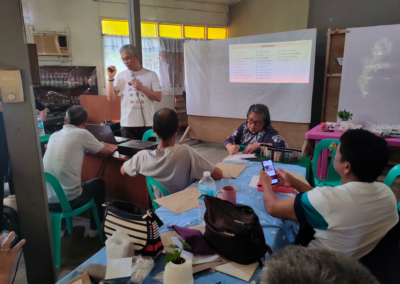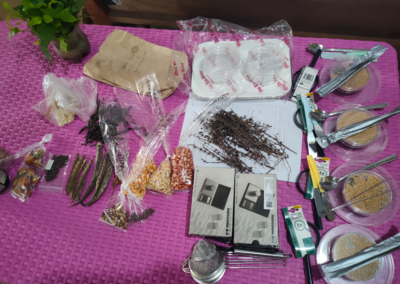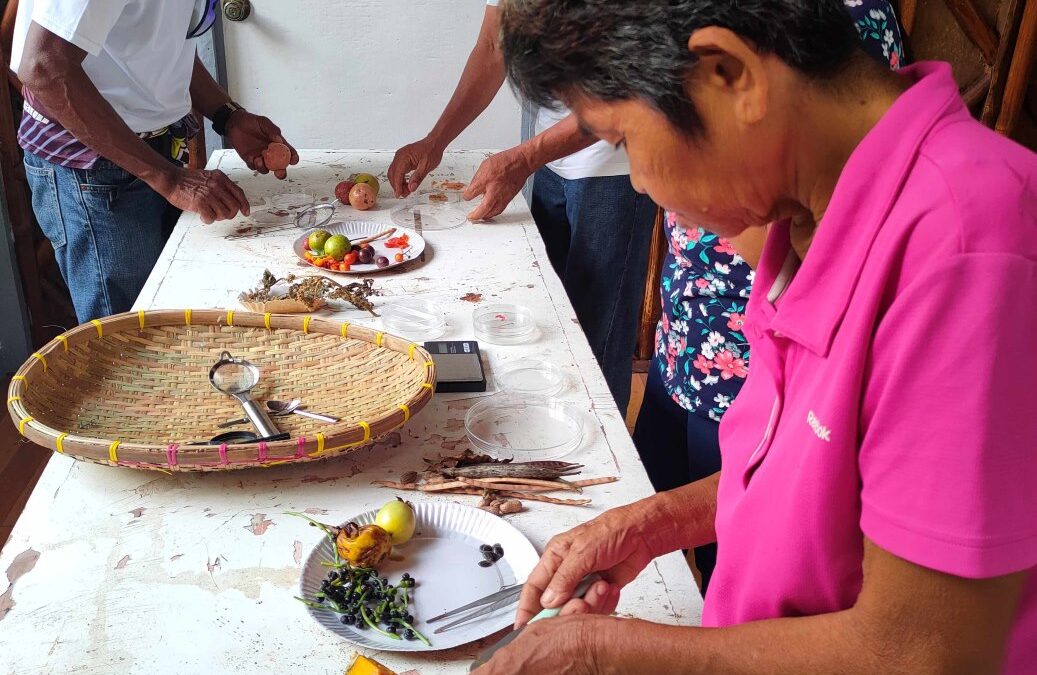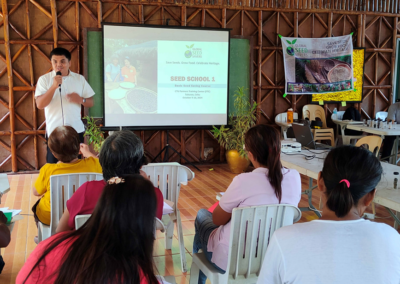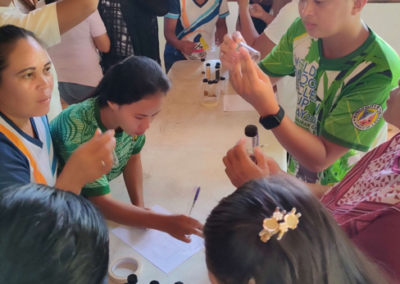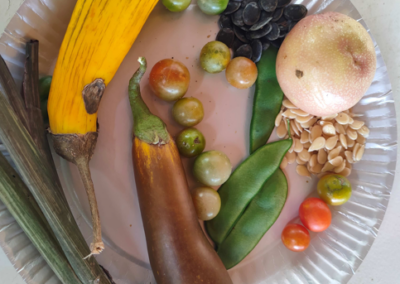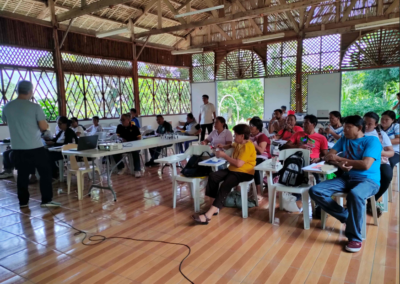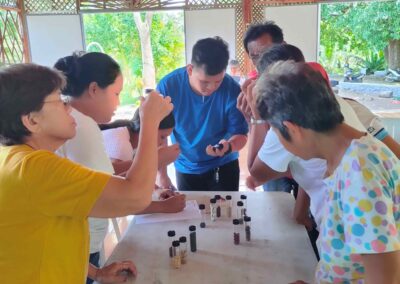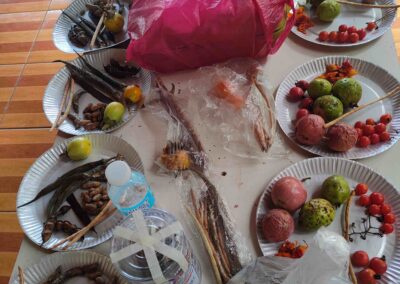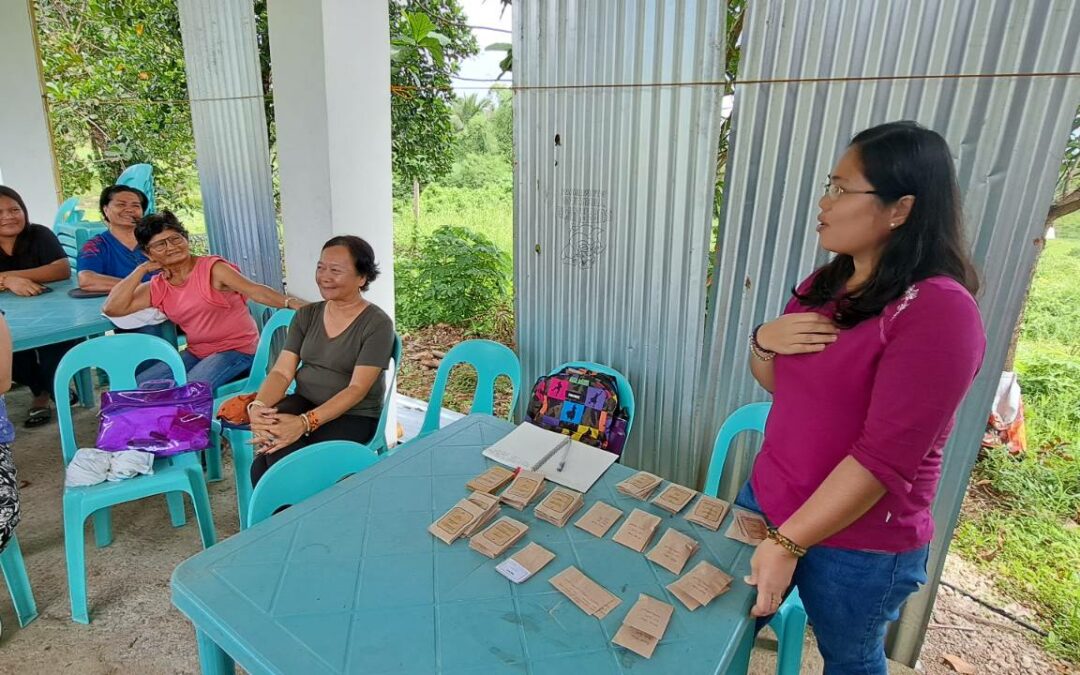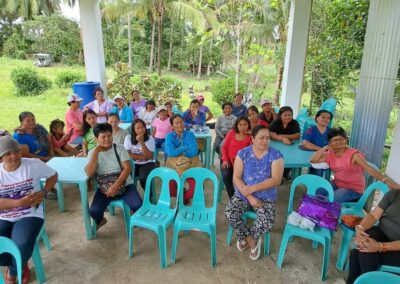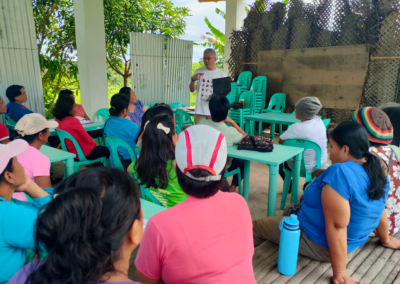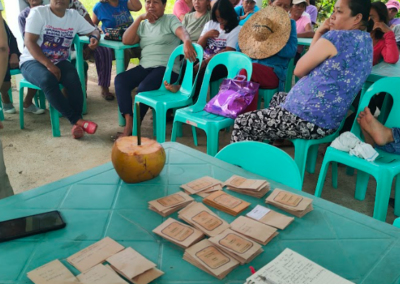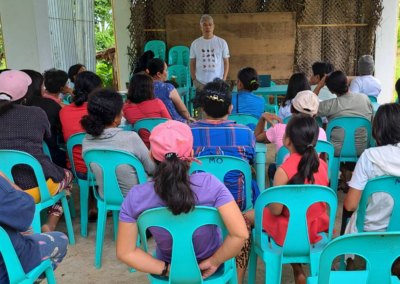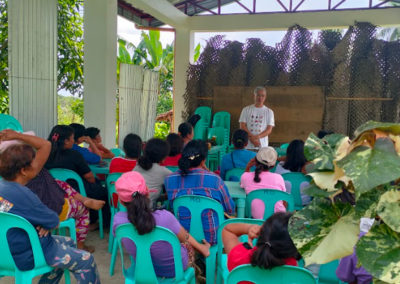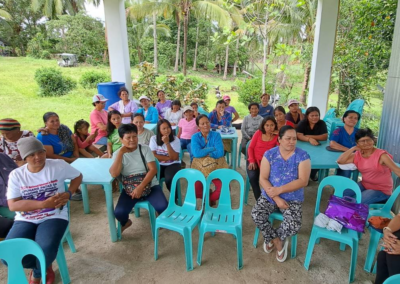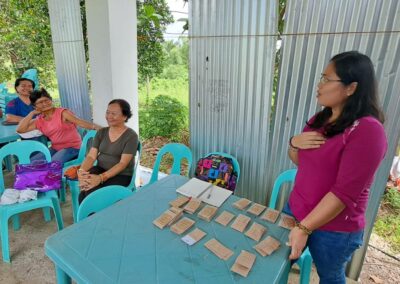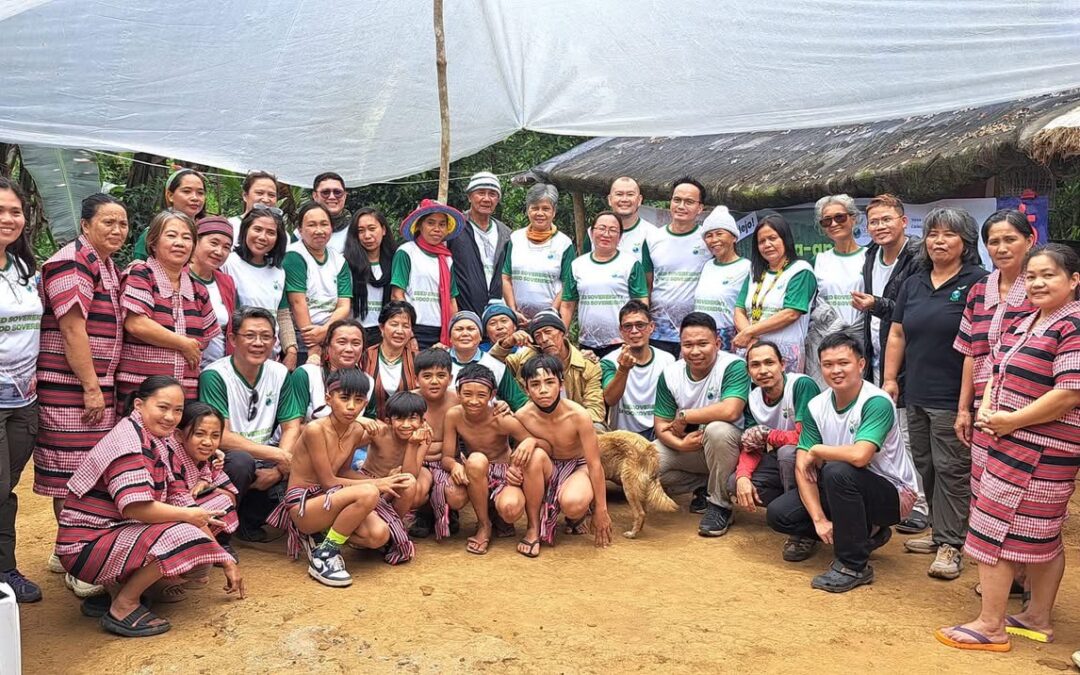
GSS Hosts Seed School 3: A Farmer-to-Farmer Approach to Seed Sovereignty
From December 1-6, 2024, Global Seed Savers conducted Seed School 3 – Training of Trainers: A Farmer-to-Farmer Approach to Seed Sovereignty in partnership with Fastenaktion. Held at the Ridge Loft Inn in Baguio City, this week-long program brought together 25 dedicated farmer-leaders from Luzon, Visayas, and Mindanao to become community trainers, facilitators, and advocates for seed sovereignty.
The training opened with a heartfelt ritual that set the tone for a transformative week. Participants engaged in hands-on learning, honing their facilitation skills with modules from Seed School 1 (Basic Seed Saving Course) and Seed School 2 (Nature-Based Seed Production and Library Management). They also visited a seed-saving community in Tublay, Benguet, drawing inspiration from local practices and stories.
The program culminated in a moving graduation ceremony at the Seed Sanctuary in Tublay, Benguet. The event featured a traditional Ibaloi dance ritual, honoring the participants’ dedication and celebrating their role in advancing seed sovereignty.
Beyond gaining practical skills, participants built meaningful relationships and formed a network of farmer-leaders united in protecting seeds, culture, and communities. This training also helped connect these farmers from all over the Philippines and deepen their understanding of their peers and that they are part of a large movement leading and growing our work! These leaders are now ready to bring Seed Schools to their regions, amplifying the movement for seed self-sufficiency, seed security, and seed justice.
This training marks an exciting step for Global Seed Savers as we enter 2025. By supporting farmers to teach and inspire others, we are creating a ripple effect of resilience and sustainability—one seed at a time.
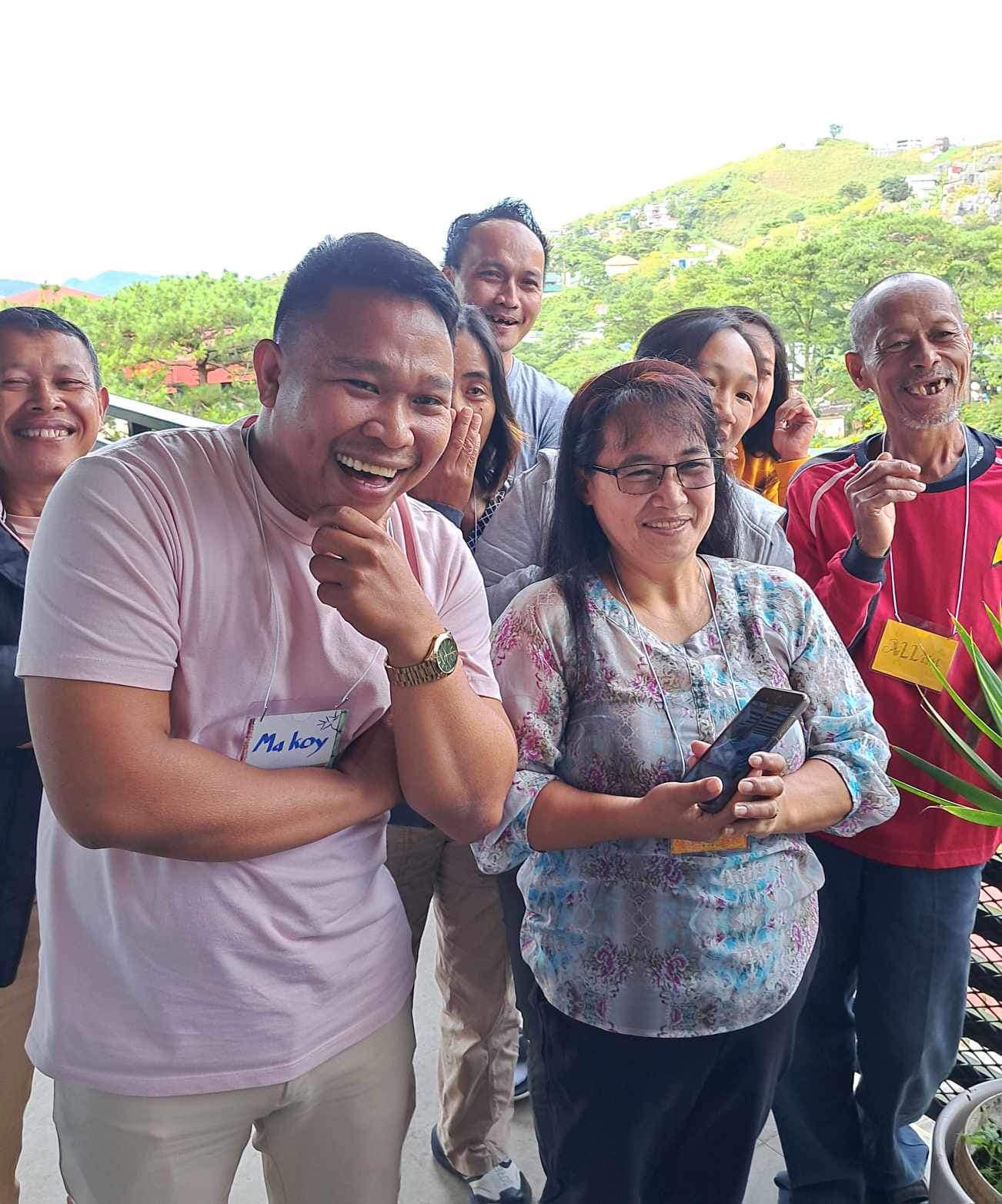
“I gained additional knowledge in seed saving and its importance in every Filipino farmer. I can share these learnings with my fellow farmers, especially, the technique in saving Indigenous and organic seeds which slowly becomes extinct. Also, I gained ideas on new farming technologies that I can share with my fellow Mindanaos. Long live our Filipino farmers!”
– Makoy Estrella, farmer leader
